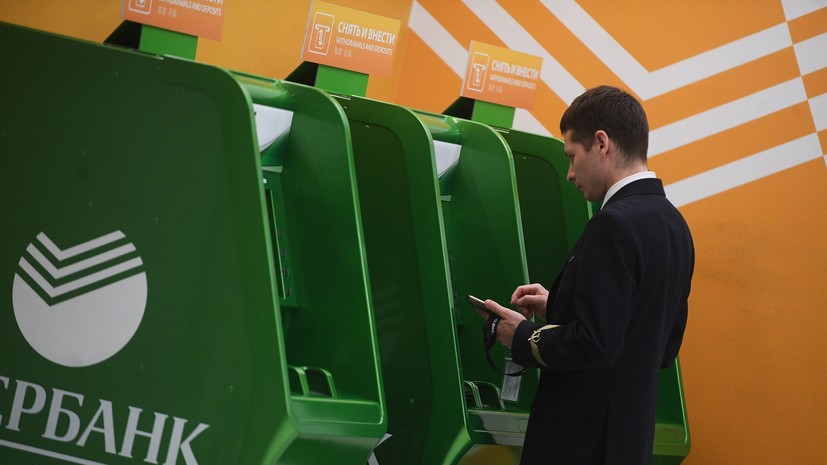As part of the tariff change, Sberbank introduced a commission for internal money transfers through self-service devices. Now, customers must pay 1% for transferring any amount through an ATM, however, the commission cannot exceed 1000 rubles, regardless of the region. The relevant information is available on the bank's website.
As explained by RIA Novosti in the press service of the financial organization, the new system was introduced on June 2. It assumes that customers can transfer up to 50 thousand rubles a month for free, and then either purchase a subscription to make interest-free transfers or pay 1% of each transaction. However, the limit does not apply to transfers through an ATM.
“This monthly limit satisfies the needs of almost 90% of Sberbank customers,” the press service said, adding that about 1% of all money transfer transactions are made through ATMs.
It is noted that the vast majority of customers use the Sberbank Online service and SMS bank to transfer funds. These transfer methods in the amount of up to 50 thousand rubles per month remain free.
In early June, the press service of Sberbank reported that the subscription system allows you to raise the threshold for free transfers: for 99 rubles a month, you can transfer up to 100 thousand, and from 134 rubles a month you can apply for unlimited transfers within the bank. You need to do this in the Sberbank Online application.
At the same time, the Auto Transfer service, which provides for the regular transfer of the same amount to the selected recipient, allows you to make intra-bank transfers of funds without commission. “This transfer will not be taken into account in spending the free limit,” the bank said.
Svetlana Kirsanova, deputy chairman of the board of the financial institution, explained that the bank cannot make these subscriptions completely free: “We need basic investments in its further development, including to increase reliability and stability. Therefore, the commissions will be aimed at maintaining infrastructure, technical support, building infrastructure and operational processes. ”
These steps were taken after the adoption of the law on the abolition of the so-called bank roaming, which involves the elimination of the commission for money transfers between customers from different regions of the country.
The corresponding bill was submitted to the State Duma in September 2019. The parliamentarians emphasized that the adopted changes should ensure the development of cashless payments and protect the interests of citizens. In December, Russian President Vladimir Putin signed the document. The law entered into force on June 14.
As follows from the document, the size of the commission charged when transferring funds between accounts of individuals within one bank cannot be determined by opening accounts in different structural divisions of a credit organization.
As Dmitry Medvedev, the then prime minister, noted in October 2019, speaking about the need to adopt such a law, “the existing inter-regional discrimination is unacceptable and must be eliminated.”
“Our country is large, but from the point of view of such electronic transactions, it has absolutely no difference and does not even affect costs,” Medvedev emphasized.
Then, in October 2019, the head of Sberbank German Gref stated that 95% of all bank transfers are free of charge. At the same time, he noted that the credit organization headed by him was somewhat late with the change in the monetization model.
“We needed to change the monetization model earlier. Since April, we began to conduct various experiments in order to understand what will be adequately perceived by the client, ”Gref said.
He later said that Sberbank was testing schemes for changing commission payments, as a result of which an “industrial solution” would be introduced by mid-2020.
According to the Bank of Russia annual report, in 2019 the volume of money transfers through payment systems amounted to 56.7 trillion rubles. Of these, 47.2% accounted for Sberbank.

